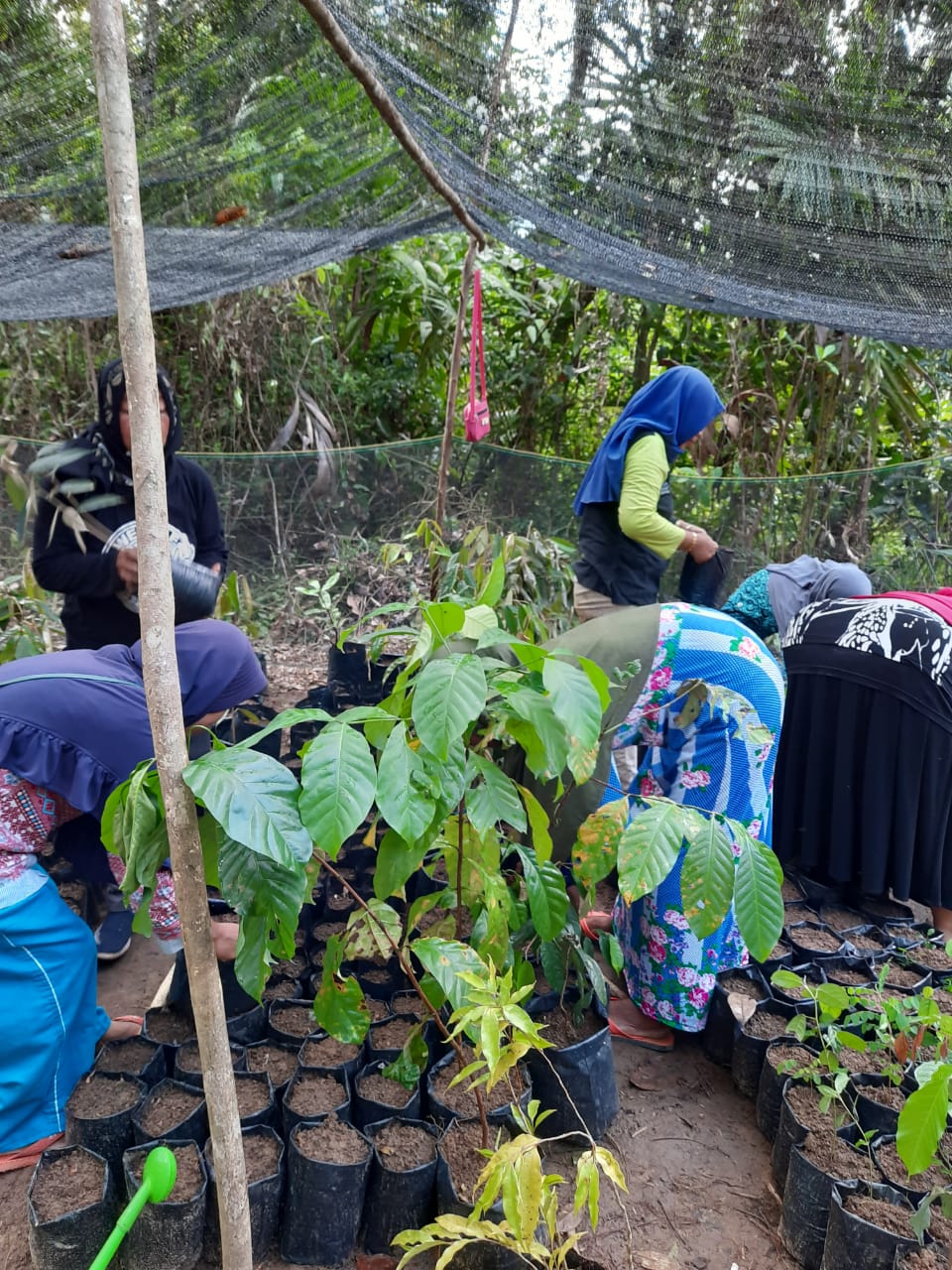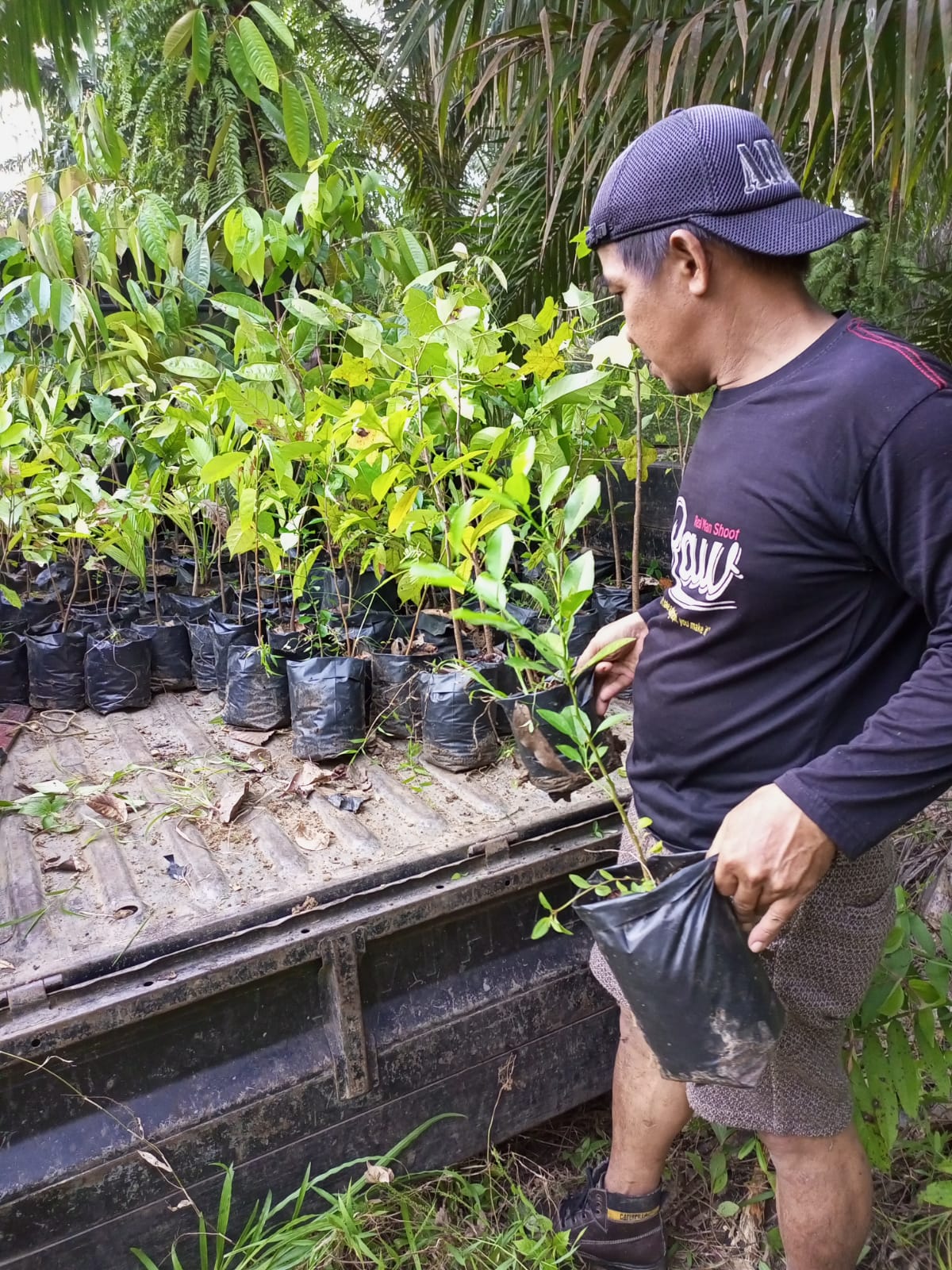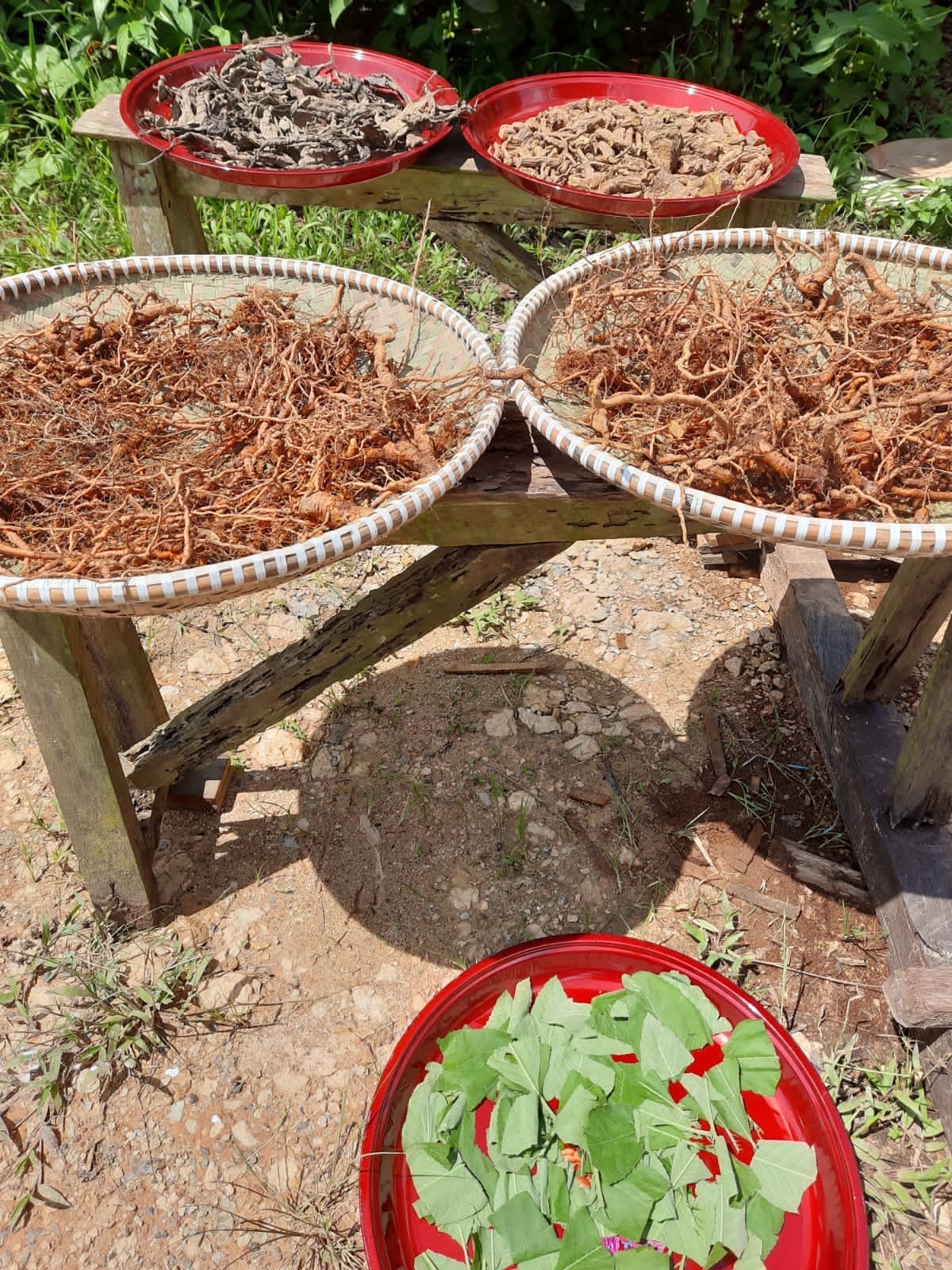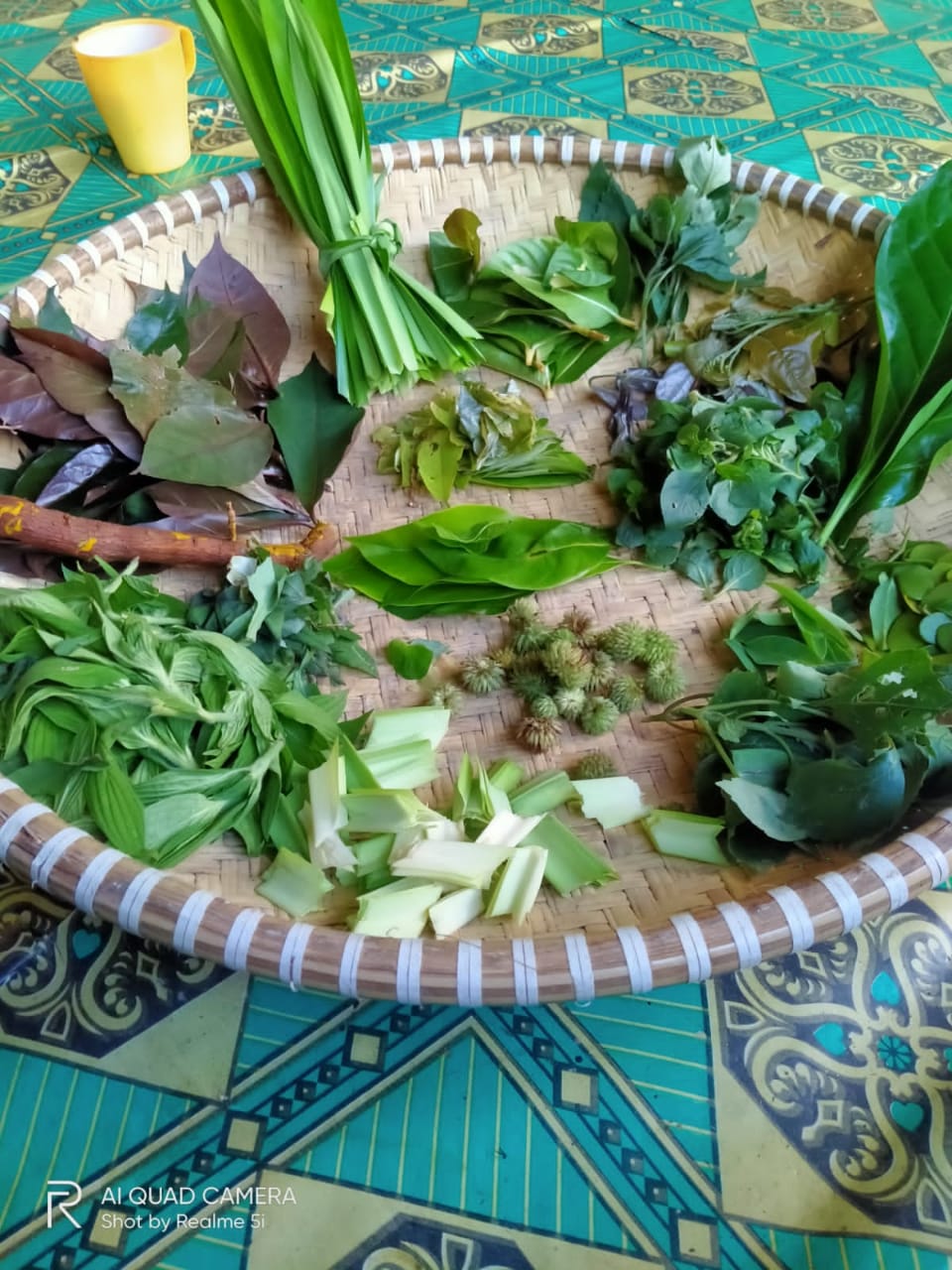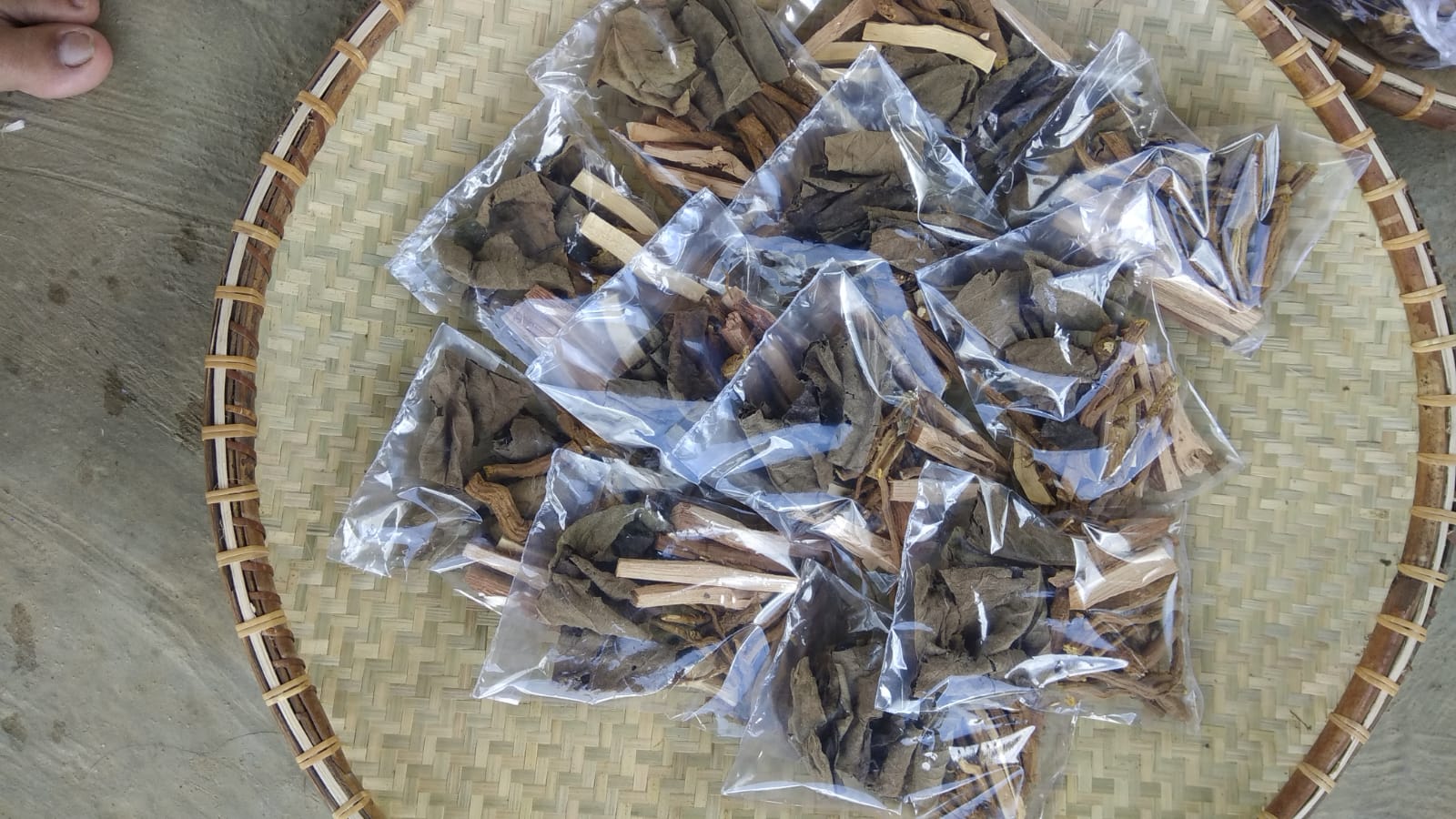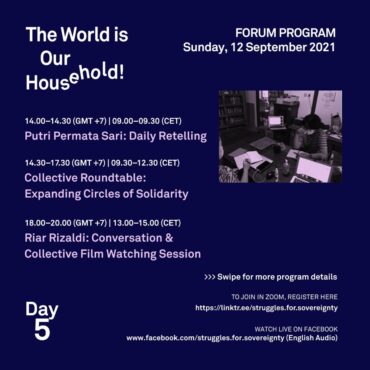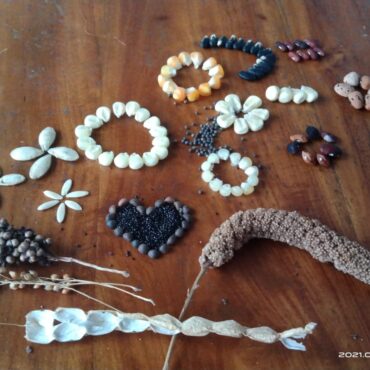Yurni Sadariah is an “Adat” (indigenous) activist and member of PEREMPUAN AMAN (the Women’s Association of the ‘Indigenous Peoples Alliance of the Archipelago’), a wing of AMAN founded in 2012, focusing on the situation of indigenous women. Yurni is a mother of three and part of the indigenous community in Rangan, Paser (East Kalimantan).
Traditionally her community relied on a rich resource of traditional medicinal plants foraged from their local forests. Unfortunately, the herbal plant sources in Rangan became increasingly scarce, as their Adat forests were destroyed by land concessions by palm oil companies. This meant not only the medicine itself, but the traditional knowledge systems amongst the women of the Adat community were slowly eroded, as it became harder and harder to find the plants these systems relied on.
As Mbak Yurni has told us, Adat (Indigenous’) women in Rangan have an important role as community caretaker. Adat women have been embodying traditional medicinal knowledge systems passed from generation to generation. As such, for her ‘Forum Partner’ Project Mbak Yurni has been working with her community to search for and collect traditional medicinal plants, documenting these plants and their uses. Further, together with the Adat women in Rangan she has been working to regenerate these knowledges by creating a community garden and seed bank, cultivating their traditional medicinal plants, as well as trees and local fruits which are nearly extinct.
In the midst of Covid-19 pandemic, these traditional medicines have once again become an important source of community life in Rangan. They consume traditional medicine on a daily basis. Through their collective gardening, Mbak Yurni’s and Adat women in Rangan have been able to start to produce and sell these traditional medicines, developing solidarity economies for their community (selling only to their Adat communities in limited amounts).
Until now, Mbak Yurni together with Adat women (members of PEREMPUAN AMAN), a group of Adat young people from martial art organization, and Adat institutions of Rangan, have documented around 100 varieties of traditional herbal plants.
Below you can see the documentation process of traditional medicine and collective gardening by Yurni Sadariah with Adat community in Rangan:
